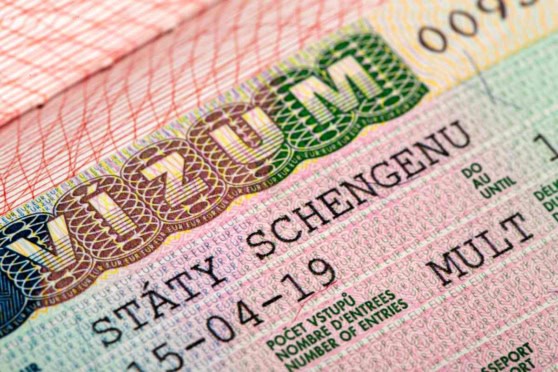International Health Insurance
Gain valuable insights and practical tips for navigating international health insurance while living abroad. From coverage details to expert advice, this comprehensive guide helps travelers…

International medical cover for expats and their families.
Medical and trip cancellation coverage for international travel.
Life insurance for globally mobile individuals living or working abroad.
Comprehensive international medical coverage for groups.
Medical, accident, and liability protection for global travel.
Financial protection for employees worldwide.
Most Popular Country Guides
Healthcare, insurance, and living insights to plan life and travel in each destination.
Healthcare, safety, and practical guidance for living abroad.
Tips and guidance for safer, smarter international travel.
Resources for global mobility, HR, and international teams.
Learn about the Schengen visa insurance requirements and costs, and find the best plan for your European trip.


If you plan to travel to Europe, you must meet specific travel medical insurance requirements to obtain a Schengen visa. This mandatory coverage is a crucial part of the application process for most travelers.
In this article, we’ll explain everything you need to know about Schengen visa insurance, including the required coverage limits and essential policy benefits. You’ll also learn how to choose a plan that meets all criteria, so you can apply confidently and travel with peace of mind.
Click on a plan link below to get the coverage you need for your visa application and travel in Europe.

The Schengen Area consists of 29 European countries that allow travelers to move freely across borders with a single Schengen visa. Once you have this, you can visit any of these countries without having to undergo repeated border checks.
However, before your visa is granted, you must meet several requirements, one of the most critical being valid travel medical insurance that covers your entire stay and is accepted throughout the Schengen Zone.
Whether you are traveling for leisure or business, alone or with a group, this insurance is mandatory for your application.
To meet the requirements for the visa, your travel policy must:
Some countries also require an official letter from your insurance provider confirming that your policy meets the requirements.
This letter usually includes your full name (as on your passport) and date of birth. Check with the embassy or consulate of your destination to see if this letter is needed.
The typical coverage requirements include:
Always verify with your embassy or consulate if additional health insurance requirements apply, as these can vary.
For most travelers staying less than 90 days, this insurance is mandatory. However, even if it’s not required for entry, having travel medical coverage is a smart way to protect yourself abroad.

One great benefit of the recommended plans above is that they automatically generate a visa insurance letter immediately after purchase.
This letter confirms that your policy meets the requirements and is emailed to you along with your insurance documents, including your policy, cards, and other relevant information. You can submit this letter with your application to the embassy or consulate.
Travel medical insurance offers temporary health coverage for you and your traveling party. These plans can help you avoid expensive medical bills if you require urgent care while abroad.
Typical benefits include:
When planning your trip, it’s essential to research your coverage options carefully and invest in adequate insurance.
Doing so lets you relax and enjoy planning your adventure, knowing you can access any assistance you might need while traveling.

Here are some recommended travel medical plans that meet the requirements:
Our top-tier Schengen visa plan, IMG Patriot Platinum, is designed for international travelers and offers the highest policy limits, extensive global medical benefits, and expedited documentation, making it ideal for extended trips or premium coverage needs.
The Trawick Safe Travels International plan offers excellent value for international citizens visiting Europe. It includes Schengen visa-ready coverage, substantial emergency medical benefits, no U.S. residency requirement, and an instant visa letter upon purchase.
WorldTrips Atlas is a reliable and budget-friendly option ideal for visa applicants worldwide. It meets Schengen requirements with customizable coverage and an instant letter.
Please note that this plan is not available to residents of Australia or Canada; however, Australian and Canadian citizens are exempt from the Schengen visa requirement.
U.S. citizens can enter the Schengen Area without a visa for stays of up to 90 days within 180 days. However, by the end of 2026, you must obtain an ETIAS (European Travel Information and Authorization System) approval before departure.
If you are a U.S. resident but not a U.S. citizen, such as a green card holder, you may still need a Schengen visa depending on your country of citizenship. Check the current requirements based on your passport nationality before planning your trip.
BCBS Global Solutions Single Trip Platinum provides premium travel medical insurance for U.S. citizens and residents who have primary health coverage. It includes up to $1,000,000 in benefits, covers pre-existing conditions, and provides access to a trusted global network, making it an ideal choice for safe, worry-free travel abroad.
Trawick Safe Travels Outbound is a popular travel medical plan for U.S. citizens traveling to Europe. It offers up to $500,000 in coverage for medical emergencies, along with benefits for evacuation, trip delay, and lost baggage, providing solid protection for international trips.
Trip cancellation insurance covers the cost of your trip if you or a traveling companion cannot travel, while also meeting the medical coverage requirements. It’s especially valuable in cases of illness, accidental injury, stolen passports, or unexpected events, such as a terrorist incident at your destination.
The Trawick Pathway Premier plan is available only to U.S. citizens and residents traveling within the U.S. for up to 90 days and abroad. It is ideal for costly international trips, for trips booked well in advance, or for once-in-a-lifetime experiences. In addition to trip cancellation, the plan protects against medical emergencies, travel delays, lost baggage, and other unforeseen disruptions, helping you safeguard your investment and travel with greater peace of mind.
The cost of travel insurance for your Schengen visa depends on several factors, including your age, trip length, destination, total trip value, and the coverage limits you select.
Plans that include trip cancellation coverage generally cost more. On average, trip cancellation insurance costs about 5% of your total trip price. This is higher if you are older, and lower if you are younger.
Although the visa sets minimum insurance requirements, purchasing extra coverage, especially for longer trips, is a smart way to better protect yourself.
A 30-year-old U.S. citizen purchasing the Trawick Pathway Premier plan for a 10-day trip to Costa Rica with a total trip cost of $2,500 would pay approximately:
You can also buy coverage on a daily or monthly basis, with costs typically ranging from $1 to $5 or more per day, depending on your age, trip details, and selected benefits.
Plans with lower medical limits and higher deductibles will be less expensive, while those with higher limits and lower deductibles will be more expensive.

Most U.S. Medicare and Medicare Supplement (Medigap) plans do not meet the required medical coverage criteria for a Schengen visa.
While some Medigap plans offer limited emergency coverage for foreign travel, they often fail to meet the Schengen criteria. For example:
To meet the requirements, you must have at least €30,000 in medical coverage that is valid throughout all Schengen countries, including emergency care, hospitalization, and repatriation. Most U.S.-based Medicare Supplement plans don’t fulfill these criteria.
If you’re applying from the U.S., consider purchasing a travel medical plan that meets the requirements of your visa.
